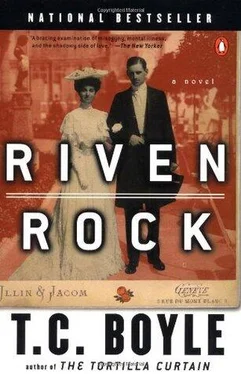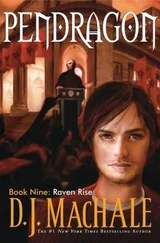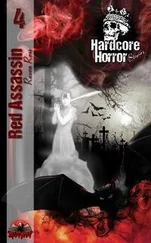T. Boyle - Riven Rock
Здесь есть возможность читать онлайн «T. Boyle - Riven Rock» весь текст электронной книги совершенно бесплатно (целиком полную версию без сокращений). В некоторых случаях можно слушать аудио, скачать через торрент в формате fb2 и присутствует краткое содержание. Год выпуска: 1999, Издательство: Penguin Books, Жанр: Современная проза, на английском языке. Описание произведения, (предисловие) а так же отзывы посетителей доступны на портале библиотеки ЛибКат.
- Название:Riven Rock
- Автор:
- Издательство:Penguin Books
- Жанр:
- Год:1999
- ISBN:нет данных
- Рейтинг книги:5 / 5. Голосов: 1
-
Избранное:Добавить в избранное
- Отзывы:
-
Ваша оценка:
- 100
- 1
- 2
- 3
- 4
- 5
Riven Rock: краткое содержание, описание и аннотация
Предлагаем к чтению аннотацию, описание, краткое содержание или предисловие (зависит от того, что написал сам автор книги «Riven Rock»). Если вы не нашли необходимую информацию о книге — напишите в комментариях, мы постараемся отыскать её.
Riven Rock — читать онлайн бесплатно полную книгу (весь текст) целиком
Ниже представлен текст книги, разбитый по страницам. Система сохранения места последней прочитанной страницы, позволяет с удобством читать онлайн бесплатно книгу «Riven Rock», без необходимости каждый раз заново искать на чём Вы остановились. Поставьте закладку, и сможете в любой момент перейти на страницу, на которой закончили чтение.
Интервал:
Закладка:
“Arabella,” O‘Kane said. “Arabella Doane.”
Nick just shook his head, and no one was laughing now. They looked down the long tunnels of their beers, stretched their legs under the table, stared vacantly round the room as if seeing it for the first time. Mart suppressed a belch, patting his lips gently with the back of his hand. “That was a crime,” Nick said finally, “a real crime. And frankly, it makes me wonder what I’m doing going all the way out to California for a man like that.”
O‘Kane had nothing to say to this. He was thinking about Arabella Doane. She was a shadow in a back corner of his mind, a cat you pick up to stroke and then put down again when it stops purring. He remembered her hair — amazing hair, the exact color of ripe peaches— and the locket she wore with a miniature of Florence Nightingale, the Lady of the Lamp, inside. O’Kane knew about that locket because he’d played with it where it dangled between her breasts, and he knew the acid-sweet taste of her mouth like an apple split in two, and the strange wild scent of her when she was aroused. That was before Mr. Stanley McCormick got to her — and how he managed it was a mystery to all of them. But he got to her, all right, and if it wasn’t for the fact that she broke away long enough to scream there would have been hell to pay, real hell, the kind that involved the police and maybe even the mortician…. Now she was back in Rhode Island, with her mother, but the look of her that day, the way her eyes had melted away to nothing and the color had gone out of her so you could see every lash and hair on her head like brushstrokes in oil, came to him in infinite sadness.
Up at the bar, two drunks in working clothes had begun to harmonize on a doleful faltering version of “In the Sweet By and By,” their heads down low to the polished mahogany counter, and O‘Kane felt so depressed in that moment it was as if a mountain had collapsed on him. He was making a mistake, he was sure of it, the whole thing was wrong, absolutely and irreparably, and California was no dream but a nightmare, a sandpit, a trap. A man like that. Arabella Doane, Katherine Dexter McCormick. In the sweet by and by, the drunks sang, joined now by a chorus of ragged whiskey-choked voices that mocked the promise of the refrain, We shall meet on that beautiful shore.
But then Pat gave his brother a shove and said, “The man’s disturbed, Nick — you can’t blame him for that. He needs help, is all, like the rest of them.”
“That’s right,” O‘Kane heard himself saying, and the moment had passed. What had happened to Arabella Doane was regrettable — horrible, unconscionable — but they were on a mission now, and the mission was called Mr. Stanley McCormick. He was going to get well — they were going to make him well — and when he was well he was going to reward them and then they’d have their orange groves and their bungalows and all the rest. That was it, that was what it was all about.
Suddenly, and maybe it was the whiskey — sure it was, of course it was — he found himself in the grip of a strange pounding exhilaration that was like a rocket going off inside him, and he could barely contain himself. He wanted to get up and dance, lead a parade, roll over Niagara Falls in a barrel. “Come on,” he said, “cheer up, Nick. This is supposed to be a celebration, isn’t it?” And in the next moment, the blood pounding in his ears from the rapid ascent, he was on his feet and roaring, “Who’ll drink with me?” and the Thompsons were rising from their chairs like statues come to life and they were all banging their mugs together in a percussion of joy. “To California!” he shouted, and his voice leapt an octave to drown out the funereal maunderings of the drunks at the bar. “To California!”
But now it was just O‘Kane, Mart and the herring. The vocalists were long gone, and Nick and Pat and Dr. Hamilton too. The crackers were stale, the eggs like wood pulp. And here was the last beer, served up on a wet cork tray, just like the first one. He lifted it to his lips, but it didn’t smell right — it smelled like vinegar, like must, like the warm yellow fluid in the chimp’s gtass — and he set it down untasted before pushing himself up from the table, bidding farewell to the ghost of Mart’s fading eyes and making his way to the door, where somebody conveniently shoved his hat and overcoat into his face. And then he was on the street, five blocks from home, and the wind picked up the rain and poured it down his collar.
It wasn’t so late—9:30 by his watch — but no one was out, not even the last lonely man in town, and the streets were silent but for the incessant hiss of the rain. The storefronts were a wall of nothing, holes punched in the night, and the trees clawed at the dim globes of the streetlights. His head ached. The suit grabbed at him under the arms, and the cuffs of his trousers were already wet through again, and he could barely drag his feet for the weight of them. At the first corner he stopped to turn his face to the sky and smell the night, but there was nothing to smell except the wet cobbles and the cold, if the cold has a smell. He stood there a long moment, solitary in the dark, until he was sure his collar was ruined and his suit shrunk beyond repair, and then he turned and headed home to his wife.
2 . EVE
The first woman Stanley McCormick ever saw — really saw, in the way that Adam saw Eve — was his sister, Mary Virginia. Stanley was nine at the time, a skinny, precocious, secretive boy with skittish eyes and a burrowing instinct. He used to like to get underneath things — beds, settees, ramparts he would construct of pillows in the drawing room or folding chairs in the lofty cavern of the ballroom. These were his secret places, his lairs and hideouts, where he could evade his brother Harold, dodge the piano teacher and elude the governess, his sisters and whichever starchy long-nosed missionary-of-the-day had been invited to breakfast, tea or supper. But most of all, when he was hidden and secure, a bag of hard candy to hand, an adventure by Jules Verne or James Fenimore Cooper propped up on his chest and the lamp softly glowing, he could escape his mother. She was the one, the one whose love could pulverize rock and draw all the planets out of their orbits to come crashing down and obliterate him in his bed, she was the one he most wanted to escape — and most wanted to be with.
It was May of 1884, just after his father died. The house was in mourning — the city of Chicago was in mourning, the nation, the whole vast roofless world — and Stanley didn’t know what to do with himself. No one had ever died before, not in his experience, and what upset him more than the death itself was that he didn’t know what was expected of him, other than to look sorrowful. Should he beat his breast, throw himself down the stairs, carry on like Mary Virginia? People patted him on the head, bent down to whisper things in his ear and peer into his startled eyes. Did they expect him to cry, was that it? Or was he supposed to bear up like a man?
His mother was no help. She never stopped moving, not even to sit down, her face battered with grief till it looked like a piece of luggage dragged from port to port, and everywhere she went she was exiled from him — from him , Stanley, her last and youngest child, her baby — by a phalanx of mourners. He wanted to be earnest, wanted to be good, wanted to grieve properly, acquit himself well, please her, but whenever he looked up for approval, all he saw was hair and ears and the backs of heads. The heads converged on her, supported on shoulders like moving walls, there was a sudden blossoming of black armbands, and at the level of his eyes he could see nothing but hands that vanished and reappeared like some conjurer’s trick, big-knuckled veiny hands glittering with jewelry and clutching the drinks and sandwiches the servants scurried to provide through the din of grieving. He was there, startled, in kneepants and a collar that was too tight, trying to avoid the crash. He’d never realized death could be so loud.
Читать дальшеИнтервал:
Закладка:
Похожие книги на «Riven Rock»
Представляем Вашему вниманию похожие книги на «Riven Rock» списком для выбора. Мы отобрали схожую по названию и смыслу литературу в надежде предоставить читателям больше вариантов отыскать новые, интересные, ещё непрочитанные произведения.
Обсуждение, отзывы о книге «Riven Rock» и просто собственные мнения читателей. Оставьте ваши комментарии, напишите, что Вы думаете о произведении, его смысле или главных героях. Укажите что конкретно понравилось, а что нет, и почему Вы так считаете.












